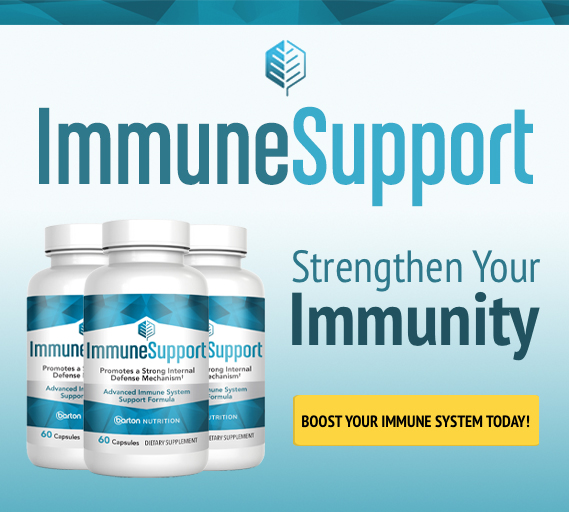Top 7 Probiotics
The Gut is the Second Brain
Even the strongest and the best can experience “butterflies” in their stomach when nervous. Behind this sensation is an often-overlooked network of neurons lining our guts that is so extensive some scientists have nicknamed it our “second brain.” This multitude of neurons in the enteric nervous system enables us to “feel” the inner world of our gut and its contents.
More than 70 percent of the body’s immune defenses are located in the intestines. There, beneficial bacteria called probiotics work to crowd out harmful microbes that can contribute to poor health and disease.
Research suggests that some people with functional digestive disorders perceive pain more acutely than other people do. This is because their brains do not properly regulate pain signals from the GI tract. Stress can make the existing pain seem even worse.
For this reason, maintaining a healthy balance of intestinal bacteria provides the foundation necessary for optimal digestion and overall health.
Importance of Bacteria
If your digestive tract is healthy, it contains more than 500 different types of bacteria. Bifidobacteria and Lactobacilli are the most prevalent types of good bacteria. They especially help fight the growth of harmful bacteria and yeast.
Why We Need Probiotics
Everyday factors such as diet, stress, travel, exposure to illness and certain medications can diminish the number of healthy bacteria in the digestive tract. This upsets an otherwise balanced intestinal environment.
This imbalance allows unhealthy microbes to flourish and may lead to intestinal issues such as diarrhea and constipation, and a decline in healthy immune function. Taking a probiotic supplement can help replenish good bacteria and restore a healthy bacterial balance.
What Benefits Do Probiotics Provide?
- Increase ability to digest food
- Promote bowel regularity
- Reduce diarrhea, especially caused by viral infection or chemotherapy
- Help keep ulcerative colitis at bay
- Control inflammation to restore organisms in the colon
- Reduce incidence of yeast infections, vaginitis and candidiasis
- Help prevent relapse of Crohn’s disease
- Help treat and prevent mastitis
- Lower LDL cholesterol
- Prevent bloating associated with proton pump inhibitors (PPI) (drugs like Prilosec)
- Reduce negative effects of antibiotics
- Improve immune function and overall well-being
- Increase ability to synthesize vitamins (including B12 and K)
- Provide nourishment for healthy intestinal cells
- Alleviate many common digestive tract disorders such as IBS
- Reduce the excitability of nerves in the gut to control anxiety
- Reduce symptoms from grass pollen allergies
- Assist with healthy weight loss and weight management
- Produce antibacterial compounds to help crowd out unfriendly bacteria
What Makes a Superior Probiotic?
The market is so flooded with options for bacterial cultures, powders, pills, etc., that consumers can get overwhelmed and make poor choices. It’s important to know how to choose the best supplement you can afford.
Some research suggests that it may be more effective to take a probiotic supplement that contains a mixture of bacterial strains rather than a single bacterial species.
When considering your supplement options, keep in mind that probiotics are sensitive to temperature, moisture and oxygen. The journey from the factory to the large intestine is a long one. Survival, and therefore efficacy, depends on how strains are cultivated, preserved, stored and handled. Manufacturers display the “best by” date to account for the typical loss of number of bacteria since the “time of manufacturing.” Purchase products that are well within their expiration date to ensure a high number of live cultures.
When it comes to probiotics, you pretty much get what you pay for. So buy from companies you trust, as well as those that have been tested for:
- The viability of organisms in the product – at least 15 billion live organisms per serving
- Lack of contaminating organisms – free of yeast, mold or other bacteria
- Ability of pill to break apart properly – so contents can be released
- Protection of the probiotics from stomach acids
The Top 7 Probiotics
The number of live microorganisms in a probiotic is measured in CFUs (colony forming units). Any supplement label should list how many live microorganisms are in each serving. Recommended doses range from 1 billion CFUs (to maintain a healthy gut, for instance) to 10 billion CFUs (for addressing specific conditions).
Ideally, swallow probiotics on a full stomach when stomach acid levels are low to give probiotics their best chance of survival. Some experts counsel building up your levels of probiotics gradually to avoid gas or bloating. Here are our researched and validated top 7 probiotics that meet the above criteria:
- 21st Century® Ultra Potency Advanced Probiotics
- Dr. David Williams Probiotic Advantage® Bifido Beadlet 50+
- Dr. Mercola® Complete Probiotics
- Garden of Life® Primal Defense® Ultra
- Nature’s Bounty Ultra Strength Probiotic 10
- Nutrition Now® PB8®
- The Vitamin Shoppe® Ultimate 10 Probiotic TM 13 Billion
There is no question that candida sufferers require probiotic supplements to replenish beneficial GI bacteria and rebuild the immune system. Even if you don’t have candidiasis, environmental and food toxins, coupled with the high-stress lifestyle of most North Americans, are good indicators of the widespread need for probiotics.
Our guts are filled with billions of good bacteria that help regulate our immune systems. When those bacteria are altered or destroyed by antibiotics, drugs and poor lifestyle, this can cause disease and poor health. Probiotics can repopulate the gut’s healthy bacteria by adding billions of different strains of flora, thereby improving vitality and helping stave off chronic disease. Make the most of your body’s beneficial bugs — for gut health, immunity, metabolism and more.






















